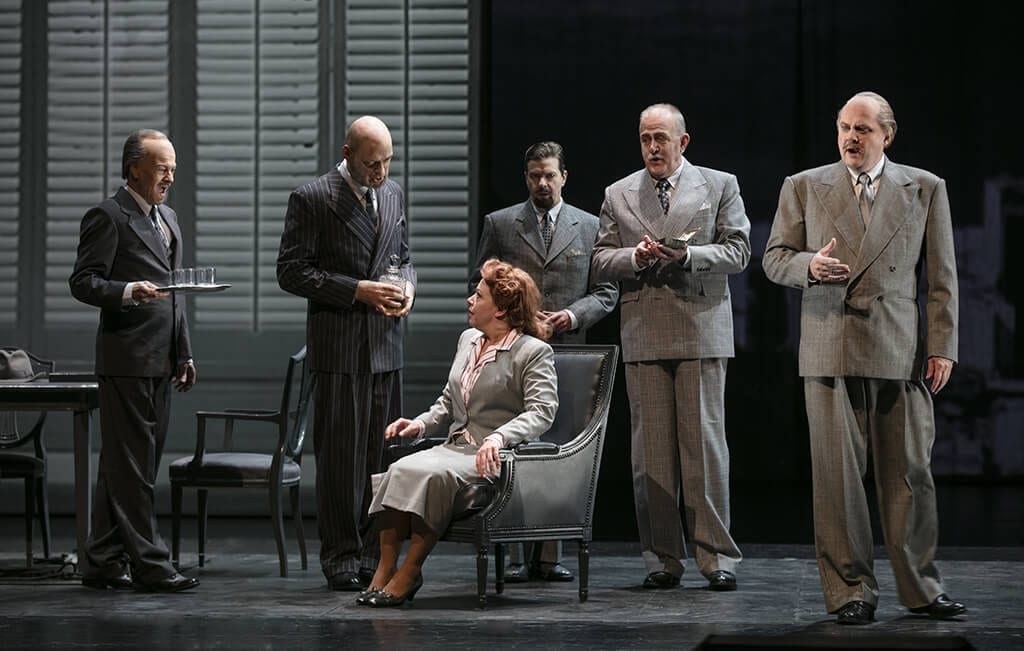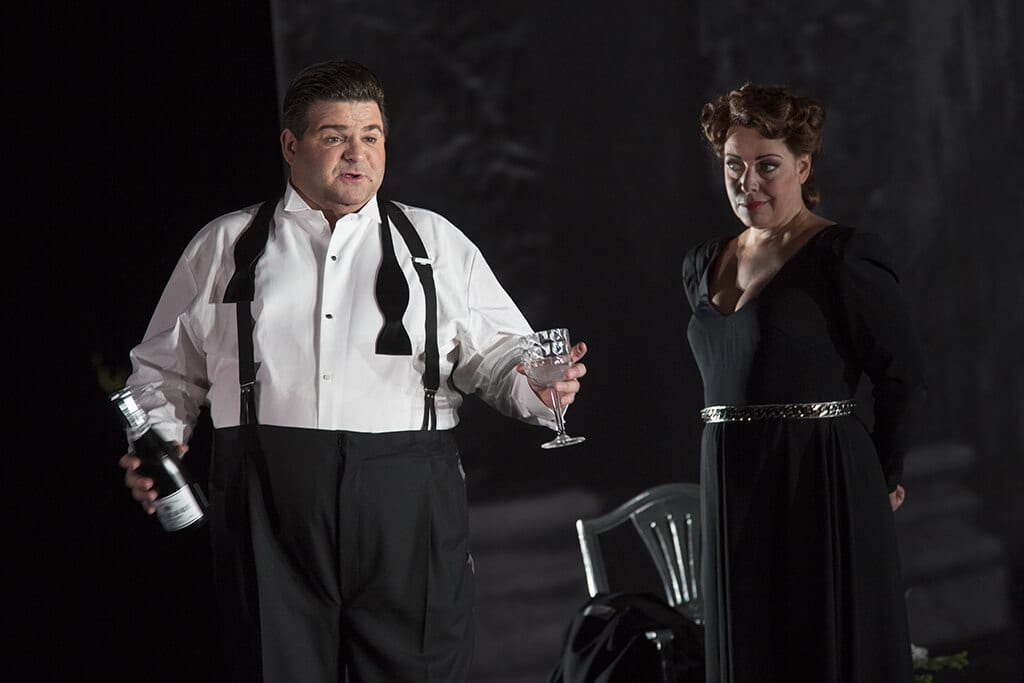Hans Gefors’ opera Notorious has its first performance in Gothenburg, Sweden, 2015.
In this newly written piece, the Swedish composer expands and enriches the famous thriller by Alfred Hitchcock from 1946. The impact created by the orchestration and lyrics makes this production an exciting experience.
Just imagine – as if a blanket suddenly was thrown over the venue to muffle the sound, the audience excitedly quiets down upon discovering our leading lady Alicia Hauser, superbly performed by soprano star Nina Stemme, on stage. In silence, Alicia crosses what appears to be the set of a film studio and our attention is turned towards a white screen on stage as the light finally slowly dims. A film starts rolling.
This meta-opening emphasizes the connection with the cinematic screen, which is instantly acknowledged as well as shattered when the film screen seconds later is slashed open by the hand of a man, present on stage. The first scene thereby sets the tone of a message carefully carried out by composer Hans Gefors and librettist Kerstin Perski – the music and the storyline go beyond interpretation or adaption of Hitchcock’s Notorious. Powerful arias replace cinematic close-ups in conveying the stormy inner world of the characters.
Alicia Hauser, our heroine, is the daughter of a Nazi sympathiser who was convicted for spying for the enemy during the Second World War. Recruited by the CIA, she is asked to help infiltrate an enemy residence in Rio de Janeiro through a former friend of her father, Alex Sebastian (Michael Weinius). Reluctant but tormented by the guilt of her father’s crimes, she agrees to take on the assignment. Alicia is moved by the conviction of her contact agent Devlin (John Lundgren) and they fall in love, little knowing that the mission will require Alicia to seduce Alex. When discovering this higher plan, Alicia is irresolute and urges Devlin partake in her decision whether to proceed or not. Jealously he coldly replies: ”It is up to you.” Agents are not supposed to succumb to emotions, yet it is by toying with precisely the enemy’s feelings that Alicia is able to unravel their plans.
The partially monochrome set designed by David Fielding echoes the original Hitchcock film, with haunting and menacing references from the movie. The master of suspense, Hitchcock himself, is impersonated in the opera. Sturdily and patiently he keeps the story rolling, present in changes of settings and quietly watching the characters play themselves out towards each other, as a set of dealt, wild cards. However cold and calculating we may try to be, in the end we are humans powered by love as well as fear. Opening the door to one equally opens the door for the other and the story, played out during the war, inevitably touches upon the issue of what it is like being human in inhumane circumstances.
The stellar cast includes, alongside Nina Stemme, the world’s greatest Wagnerian soprano, Katarina Karnéus in a brilliant performance as Madame Sebastian, John Lundgren, Michael Weinius and leading from the conductor’s podium Patrik Ringborg.
Keith Warner’s production, which coincides with Ingrid Bergman’s Centenary, is a thrill not to be missed.




